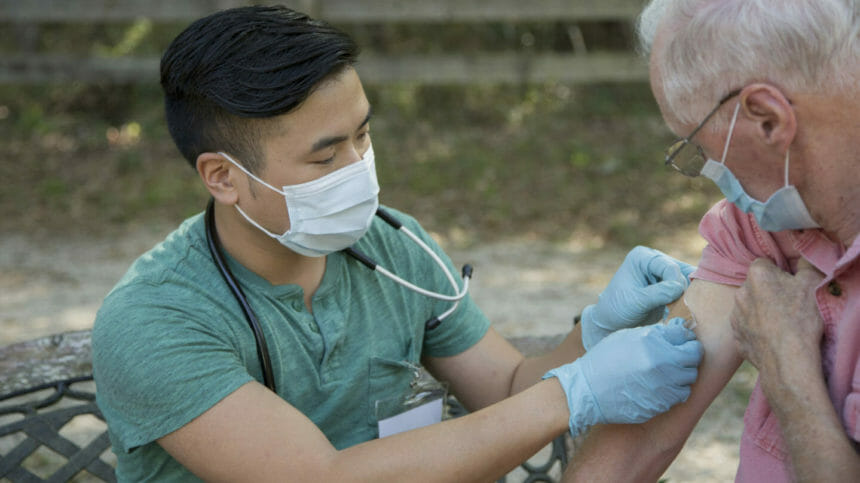
Updated, bivalent COVID-19 booster vaccines provide 73% additional protection against hospitalization when compared with the original monovalent shots that are now used as primary vaccinations, a new federal study has found.
The news comes as rates of COVID-19 cases are increasing and new vaccine-evading viral variants emerge. The Food and Drug Administration on Friday announced that its advisers will soon decide whether and how best to update the primary vaccines. Unlike the bivalent booster shots authorized for use this fall, the primary vaccines (recommended for initial vaccination) still contain their original ingredients.
With protection from the vaccines waning over time, “it’s important to continue discussions about the optimal composition of COVID-19 vaccines for primary and booster vaccination, as well as the optimal interval for booster vaccination,” the FDA said in a statement.
Hospitalization
Meanwhile, researchers from the Centers for Disease Control and Prevention analyzed COVID-19 outcome data from September through November for adults aged 65 years and older. The following results regarding hospitalizations and bivalent booster shots were reported:
- Vaccine efficacy of a bivalent booster dose was 84% in preventing COVID-19–associated hospitalization when compared with no vaccination.
- When compared with patients who had received 2 or more monovalent-only mRNA vaccine doses two months or more before illness onset, relative efficacy of a bivalent booster dose was 73%.
- When compared with patients whose last monovalent dose was between 6 to 11 months or 12 months or more before illness onset, the relative efficacy of a bivalent booster dose was 78% and 83%, respectively.
The results support recommendations that eligible older adults receive updated booster shots, the study’s authors wrote. “Increasing bivalent booster coverage among eligible U.S. adults has the potential to prevent COVID-19 hospitalizations as COVID-19 incidence and transmission increase,” they concluded.
Related articles:
FDA authorizes omicron-targeting vaccines as preferred COVID booster shots
CDC: Two booster shots cut severe COVID risk in nursing home residents by 74 percent
Nursing home COVID-19 infections quadruple as booster rate slows



